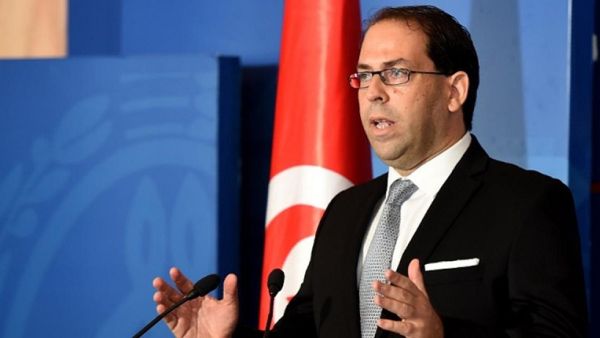Youssef Chahed's government has set out, as part of a clear communication strategy, to publicise the legal framework of the new investment law in Tunisia, through a conference held in Tunis on Saturday in the presence of a large number of representatives of the diplomatic corps accredited in Tunis as well as the Tunisian administration, MPs and professional organisations, besides investors.
Read more: Tunisia Gets EU Support For SME Growth, Development
Minister of Development, Investment and International Cooperation Fadhel Abdelkefi said the new investment law which came into force on April 1, 2017 is part of the overhaul of the investment system and the implementation of structural, economic and social reforms aimed at improving the business climate and economic recovery in the country, with a view to combating unemployment and achieving regional balance.
He said these reforms have concerned the implementation of laws relating to competitiveness, public procurement, public-private partnership (PPP) and the tax system.
The new investment law, which replaced the investment incentive code, published in 1993, is based on principles relating to the simplification of procedures and the establishment of the pillars of new governance (the Higher Investment Council, the Tunisian Investment Authority and the Tunisian Investment Fund).
It also provides for ensuring equity between domestic and foreign investors and regularising disputes by arbitration.
Read more: Tunisia's Public Debt, Budget Deficit Hit Alarming Levels
A management by objectives unit was created within the framework of this law in order to set the deadlines for authorisation (any delay in the reply by the administration is considered as an authorisation).
Incentives for investment in the regions are stipulated in this law, according to the principle of positive discrimination, enshrined by the Tunisian Constitution.
The new investment law includes three decrees against 33 decrees in the old code, while cancelling 49 investment authorisations (principle of freedom of investment).
Minister of Agriculture, Water Resources and Fisheries Samir Taieb said the current government is the first government to give priority to the agricultural sector, noting that the incentives contained in this law concern agricultural production sectors which number reached 12, without distinction.
These incentives are focused on achieving value added and promoting production, processing and exports.
Read more: A Sigh Of Relief For Tunisia? Number Of Tourists Hits 1M Mark!
He said that among the positive measures announced by the new investment law for agricultural activity is the facilitation of procedures for the granting of premiums in order to promote the mechanisation and integration of new technologies in the agricultural sector.
Regarding the mechanisation of agricultural activity, he said the premium dedicated to the acquisition of equipment has been increased, according to each category of investment
Industry and Trade Minister Zied Laadhari said the new law will direct industrial investment to several areas, such as the automotive, aerospace and pharmaceutical industries.
The law will ensure the repositioning of the agri-food, electrical and electronic industries, he said.
The president of the Tunisian Confederation of Industry, Trade and Handicraft (UTICA), Wided Bouchamaoui, for her part, affirmed that investment remains the only solution to save Tunisia, wishing to see activation of reforms during the years of implementation of the development plan (2016-2020).
In this context, she called on the government to set a deadline for the implementation of these reforms and recommended that the Central Bank of Tunisia (BCT) facilitate the activity of Tunisian investors.
Deputy Secretary General of the Tunisian General Labour Union (UGTT) Bouali Mbarki stressed the importance of the concordance of the provisions of the new investment law with the principles of the Constitution of the Second Republic regarding the achievement of development and regional balance, besides rooting decentralization, while preserving national unity and encouraging young people’s entrepreneurship.








